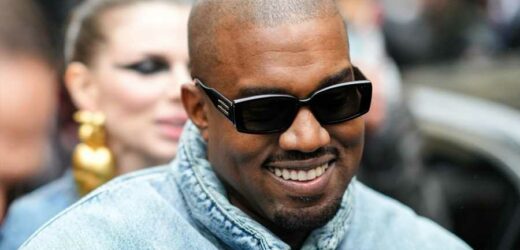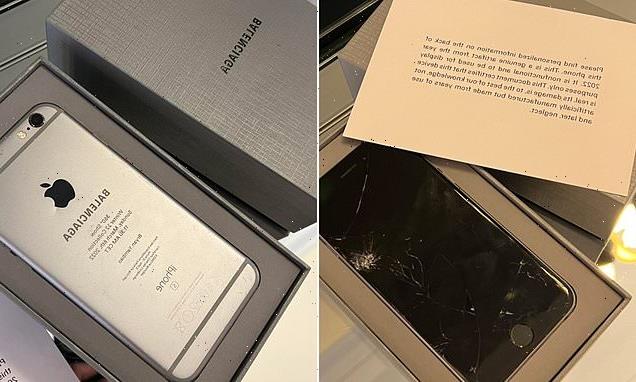The stories we tell our children help them see the scale of their potential. The most heartbreaking scenes from the final installment of the Netflix documentary jeen-yuhs: A Kanye Trilogy illuminate the fact. Kanye’s mother, the late scholar and activist Donda West, believed in her son’s dreams with no reservation. She encouraged him to reach as high as his imagination would allow. The footage of them together from decades ago offers a glimpse of a young Ye at peace with himself. Rigidity makes way for warmth and Kanye appears more akin to the lifesized teddy bear on the cover of The College Dropout than the juggernaut he’s since become. Filmmakers Coodie and Chike succeed in crafting an impossibly graceful edit. We watch Kanye sing “Hey Mama,” first during a taping of Oprah, and then for his mother in the kitchen of his childhood home. The depth of the loss Kanye felt since Donda’s death in 2007 is for a moment made comprehensible.
Related Stories
Kanye West Wrestles With Sound Issues and Divorce During 'Donda 2' Premiere
From Gucci Mane Clones to Mind Control: How Conspiracy Theories Took Over the Rap Internet
Related Stories

RS Recommends: 5 Devices You Need to Set Up Your Smart Home
Flashback: Tina Turner Covers Dolly Parton, Kris Kristofferson on Debut Solo Album
Released this week, the third chapter of jeen-yuhs crystalizes the myth of Kanye West as a creative genius stifled by a society that refuses to accept him. We glide through footage spanning more than a decade: His infamous on-stage rants, his push into the world of fashion, and, of course, “I’ma let you finish.” The story lingers for a moment in a particularly stunning appearance on The Tonight Show following the 2009 VMAs, where he infamously interrupted Taylor Swift. A still-grieving Kanye sits silently as Jay Leno proceeds with a tone-deaf line of questioning: “I was fortunate enough to meet your mom a number of years ago. What do you think she would have to say about this?” Watching the clip today, the inquiry feels like an act of violence. Less than two years had passed since the death of his mother, and here Kanye was being forced to answer to Jay Leno, of all people. It’s no wonder that, in the years since, Kanye has made controlling this story the most central part of his identity.
But narratives have a way of casting a shadow over reality. Jeen-yuhs serves, intentionally or not, as the backdrop for Ye’s latest project, the confounding Donda 2. Released exclusively on the Stem Player, a puck-shaped device that serves as something like the flagship product from Kanye’s so-called Yeezy Tech, the album is the latest in a long series of Donda-inspired projects from Ye. Unlike jeen-yuhs, the album suffers from West’s fixation on control. The warmth that Donda West was able to bring out of Kanye in the film is nowhere to be found. Rather than offer a portrait of an artist unpacking the pain of a divorce, Donda 2 plays into Kanye’s well-trodden public posturing.
Taking jeen-yuhs and Donda 2 together, along with the finalization of his divorce this week, we arrive at something of an unraveling. Not necessarily of Kanye the individual. Despite what appears to be a painful divorce, Ye seems to be finding new heights in the worlds of fashion and tech. It’s just that the same can’t be said for the music. Even after his friendship with Donald Trump and 2020 run for President managed to chip away at his image, and after Kanye spent the better part of the past year waging a public and at times troubling battle to win back his soon-to-be ex-wife’s affection, the assumption was that the music would redeem Kanye’s rougher edges. Just like it always has.
Ahead of the release of last year’s Donda, fans even joked online about their excitement for a Kanye record inspired by his pending divorce, the logic being that West made many of his greatest albums in times of emotional upheaval. The grandiose spectacle of its release, with West camping out at Mercedes Benz Stadium in Atlanta while he finished the album, could even be compared to the expansive work of artist and filmmaker Matthew Barney, who Kanye at least once referred to as his “Jesus.” Except the finished product lacked any of the complexity of Barney’s work. Rather than complicate his own mythology or his masculinity, Kanye landed on tired tropes about longing for Kardashian. The embattled husband fighting to get “her” back.
Donda 2 tumbles further into the mundane. While it’s hard to even consider the album finished — the most recent Stem Player update, titled “V2.22.22,” features only a handful of the songs Ye premiered during his performance at the LoanDepot arena — the record manages to be less ambiguous in its perspective. “Security” is ostensibly a reference to a recent tabloid moment in which Ye was allegedly blocked from seeing his children by Pete Davidson’s security. To his credit, Kanye’s rage has an intoxicating allure. “Nеver stand between a man and his kids,” he raps. “Y’all ain’t got enough security for this.” It’s a bratty declaration drenched in adolescent male angst, but also charming in the crass Kanye sort of way. Were the song not so lazily put together — an almost nonexistent drum beat rolls under what basically sounds like Ye reading off a series of threats — it might’ve worked. Instead, the song feels uncomfortable. Like overhearing someone on the phone with their therapist.
A post shared by ye (@kanyewest)
Of course, Kanye does not “negotiate with therapists,” as he informs us on the Game-assisted “Eazy,” which he premiered in Miami and released on traditional streaming platforms. The track makes good use of a sample from Slim Thug’s “Thug From Around the Way,” and features a pitch-perfect Kanye-ism: “How I ain’t bring nothin’ to the table when I’m the table?” Here, even Ye’s incessant trolling of Davidson has a sort of brazen liveliness to it. After all, the guy is kind of annoying, and lines like “God saved me from that crash, just so I can beat Pete Davidson’s ass,” cleverly pull from the extended Kanye Cinematic Universe, referencing the 2002 accident that serves as his origin myth. But it’s low-hanging fruit for an artist like Kanye, and Donda 2 lacks enough moments of brilliance to make up for it.
Instead, like on “Sci-Fi,” things only get murkier. The song opens with the voice of Kim Kardashian, a sample from her appearance on SNL last fall. “I married the best rapper of all time,” Kardashian brags, before calling Ye “the richest Black man in America.” The sample is cringe-worthy enough on its own but becomes even more painful in context. The clip cuts out before the punchline. “So when I divorced him, you have to know it came down to just one thing: his personality,” Kardashian continued on SNL. The song itself meanders along a sparse, muddy, string arrangement. “Welcome to the sci-fi,” Kanye sings. “Make a choice, Oxygen or Wi-Fi.” It’s clever, sure. A worthy hook for a Kanye song in 2022, even if it is on the nose. But Kanye doesn’t say much else on the track.
The album has its moments. Ye occasionally stumbles into more imaginative territory, like on the transcendent “Too Easy,” which manages to match the emotional resonance of 808s and Heartbreak. Similarly, “Lift Me Up” offers a mighty platform for R&B singer Vory’s angelic vocals. The Alicia Keys and Fivio Foreign-assisted “City of Gods” is a worthy successor to Jay-Z’s “Empire State of Mind,” a needed update to the canon of New York City anthems suitable for NBA soundtracks. Similarly, the snappy and ebullient “Louis Bags” has the feeling of a genuine earworm. “I stopped buying Louis bags after Virgil passed,” Kanye riffs, referring to his late friend, the fashion-industry titan Virgil Abloh. It’s a tribute wrapped in the kind of unwavering outspokenness that Ye can’t help but let slip. Jack Harlow even shows up, sounding like he’s just happy to be there. A feature on a Kanye album still carries weight, after all.
Except, Kanye’s choice of collaborators, both on Donda and Donda 2, belies his taste. The same Ye that turned a generation of rap fans onto house music thanks to a well-placed Larry Heard sample, who turned a moody Arthur Russel track into a song about driving 90 miles to beat a dude’s ass, now sounds miles removed from his crate-digging roots. What has always made Kanye’s music so exciting was the capacity of his imagination. For a time, the hip-hop world took its cues from Ye — “I told Jay I did a song with Coldplay, next thing I know he got a song with Coldplay,” he rapped on “Big Brother.” Now, with his most recent work, he’s less interested in stretching the genre’s contours, opting instead for the most obvious of youth-baiting gimmicks. An XXXtentacion feature might as well be the “How do you do, fellow kids?” of 2022 rap collabs.
Some of this, of course, is to be expected. One of the most powerful elements of jeen-yuhs is how it, almost by accident, charts the historic shift that coincided with Kanye’s ascent. Facebook launched just a week before The College Dropout was released in 2004, and you could argue Kanye’s approach to fame presaged the rise of influencer culture. His insistence on complete control over his public image chimed with a world that would soon become obsessed with constructing manicured versions of themselves for online consumption. But Facebook offers a cautionary tale for Kanye. Donda 2, and much of his work since The Life of Pablo, has conflated controlling one’s narrative with commodifying one’s life. It’s a playbook most of us left in 2019.
Source: Read Full Article


